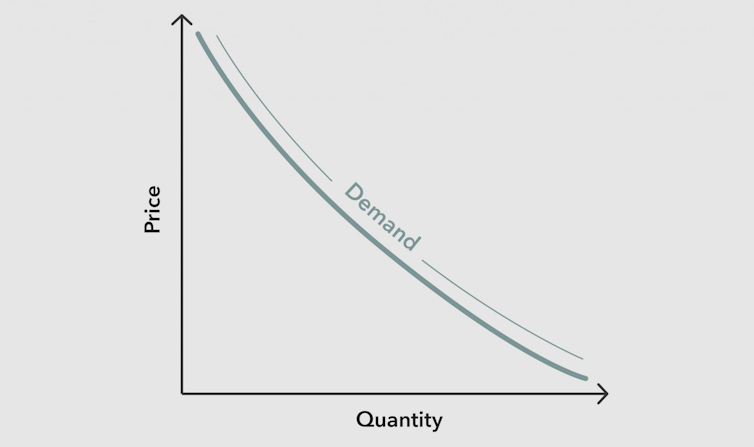Why the 'drug dealers defence' doesn't work for exporting coal. It's actually Economics 101
- Written by John Quiggin, Professor, School of Economics, The University of Queensland

In defending a Federal Court case brought by opponents of her decisions to approve two export coal mines, Environment Minister Tanya Plibersek is relying in part on what critics call the “drug dealer’s defence”.
It’s reasoning that argues: if we don’t sell this product, someone else will.
Prime Minister Albanese has argued the same thing, telling The Australian
policies that would just result in a replacement of Australian resources with resources that are less clean from other countries would lead to an increase in global emissions, not a decrease.
Albanese’s reasoning is that saying no to new Australian coal mines wouldn’t cut global emissions, it would just produce “less economic activity in Australia”.
If it sounds like a familiar argument, it is – past prime ministers and the coal industry have made similar claims for decades.
It’s possible to test this argument using economics, putting to one side the question of whether it is morally justifiable.
The defence works for drug dealers
Let’s look at how this defence works with retail drug dealers, many of whom are drug users themselves.
Street-level drug dealing is a job that doesn’t require much skill and pays above the minimum wage, even after allowing for the risk of arrest.
As a result, as soon as one dealer is arrested, someone will enter the market to replace the dealer. For this reason, drug policy has shifted away from traditional modes of street-level enforcement and towards community partnerships.
But coal is different. Global markets are supplied by a range of producers, each with different costs. Some mines can cover their costs even when world prices are low, others require very high world coal prices to break even.
In the case of metallurgical (coking) coal used to make steel, Australia’s mines are mostly at the low-cost end of the spectrum as shown below:
Indicative hard coking coal supply curve by mine, 2019
Thermal coal, used in electricity generation, is more complex, since much of the variation in price relates to its quality, rather than extraction cost.
Nevertheless, the fact remains that if one producer withdraws from the market or reduces output, it is highly unlikely to be replaced by an identical-cost producer.
It is likely instead to be replaced by a higher-cost supplier who needs a higher price to cover its costs. That’ll make the coal less attractive to the buyer who would have bought from the low-cost producer, making that buyer likely to buy less of it.
This is Economics 101, illustrated in the supply and demand diagrams in just about every economics textbook.
Why Australia’s coal matters globally
In most markets, the demand curve is downward sloping, meaning the higher the price, the less the buyer wants.





